YU: The Lost Country
Yugoslavia fell apart in 1991. With the disappearance of the country, at least 1,500,000 Yugoslavs vanished, like the citizens of Atlantis, into the realm of imaginary places and people. Today, in the countries that came into being after Yugoslavia's disintegration, there is a total denial of the Yugoslav identity.
“There proceeds steadily from that place a stream of events which are a source of danger to me,” wrote the Anglo-Irish writer, Rebecca West in 1937. “That place” was Yugoslavia, the country in which I was born. Realising that to know nothing of an area “which threatened her safety” was “a calamity”, she embarked on a journey through Yugoslavia. The result was Black Lamb and Grey Falcon. Initially intended as “a snap book” it spiralled into half a million words, a portrait not just of Yugoslavia, but also of Europe on the brink of the Second World War, and widely regarded as one of the masterpieces of the 20th century.
At Easter in 2011, I started retracing Westʼs journey and re-interpreting her masterpiece by using photography and text, an attempt to re-live my experience of Yugoslavia and to re-examine the conflicting emotions and memories of the country that was.
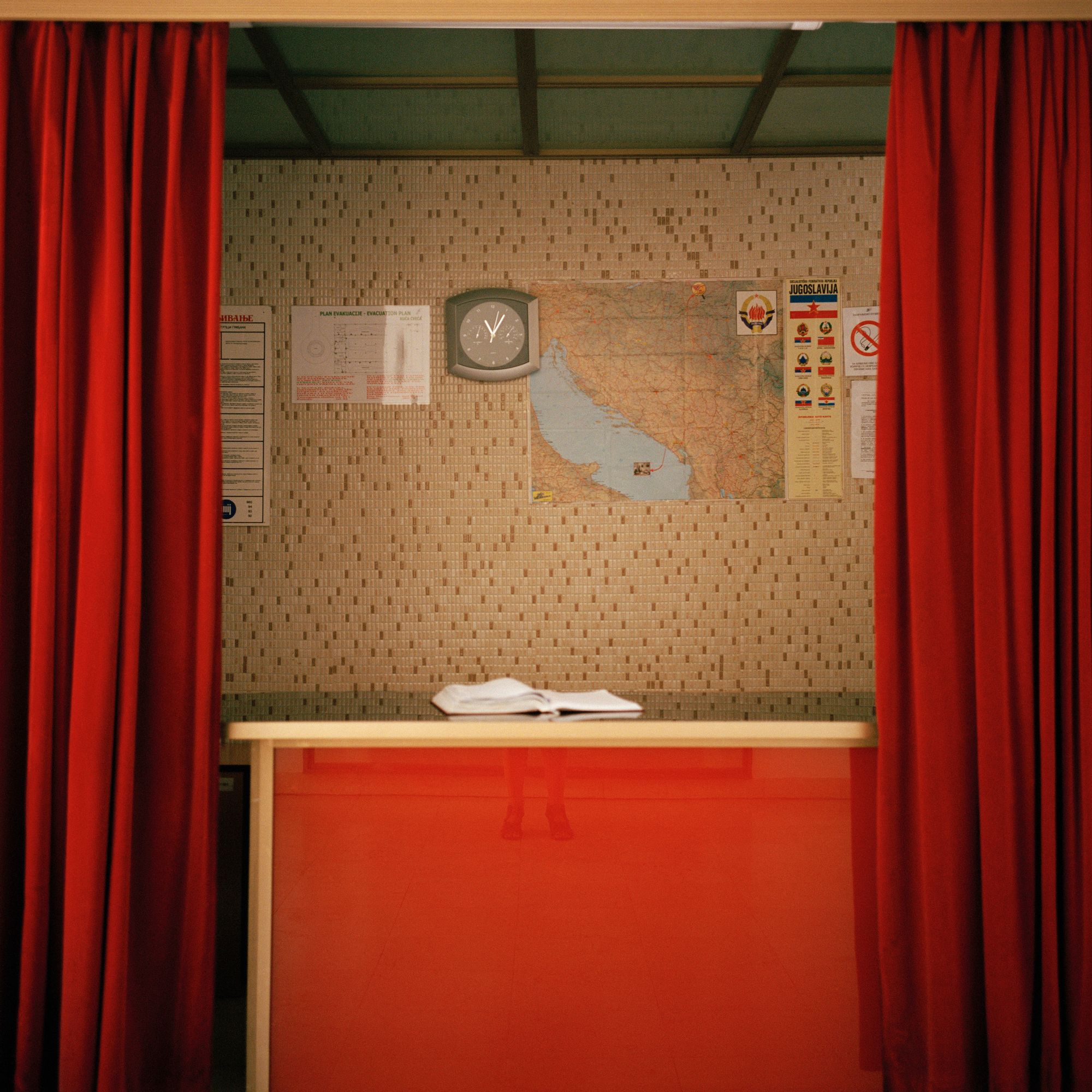
Yugoslavia fell apart in 1991. With the disappearance of the country, at least one million five hundred thousand Yugoslavs vanished, like the citizens of Atlantis, into the realm of imaginary places and people. Today, in the countries that came into being after Yugoslavia's disintegration, there is a total denial of the Yugoslav identity.
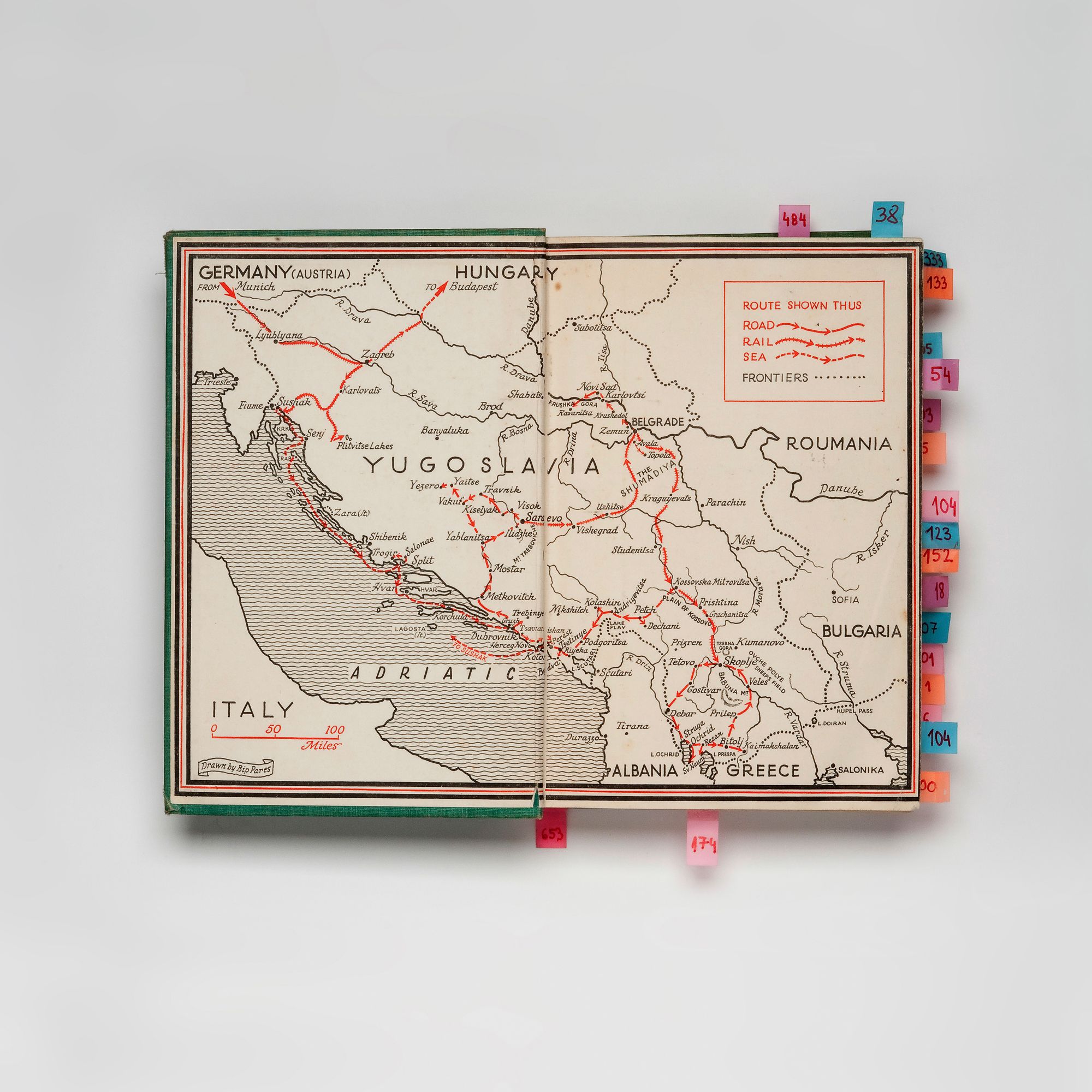
“There proceeds steadily from that place a stream of events which are a source of danger to me,” wrote the Anglo-Irish writer, Rebecca West in 1937. “That place” was Yugoslavia, the country in which I was born. Realising that to know nothing of an area “which threatened her safety” was “a calamity”, she embarked on a journey through Yugoslavia. The result was Black Lamb and Grey Falcon. Initially intended as “a snap book” it spiraled into half a million words, a portrait not just of Yugoslavia, but also of Europe on the brink of the Second World War, and widely regarded as one of the masterpieces of the 20th century. At Easter 2011, I started retracing Westʼs journey and re-interpreting her masterpiece by using photography and text, in attempt to re-live my experience of Yugoslavia and to re-examine the conflicting emotions and memories of the country that was.
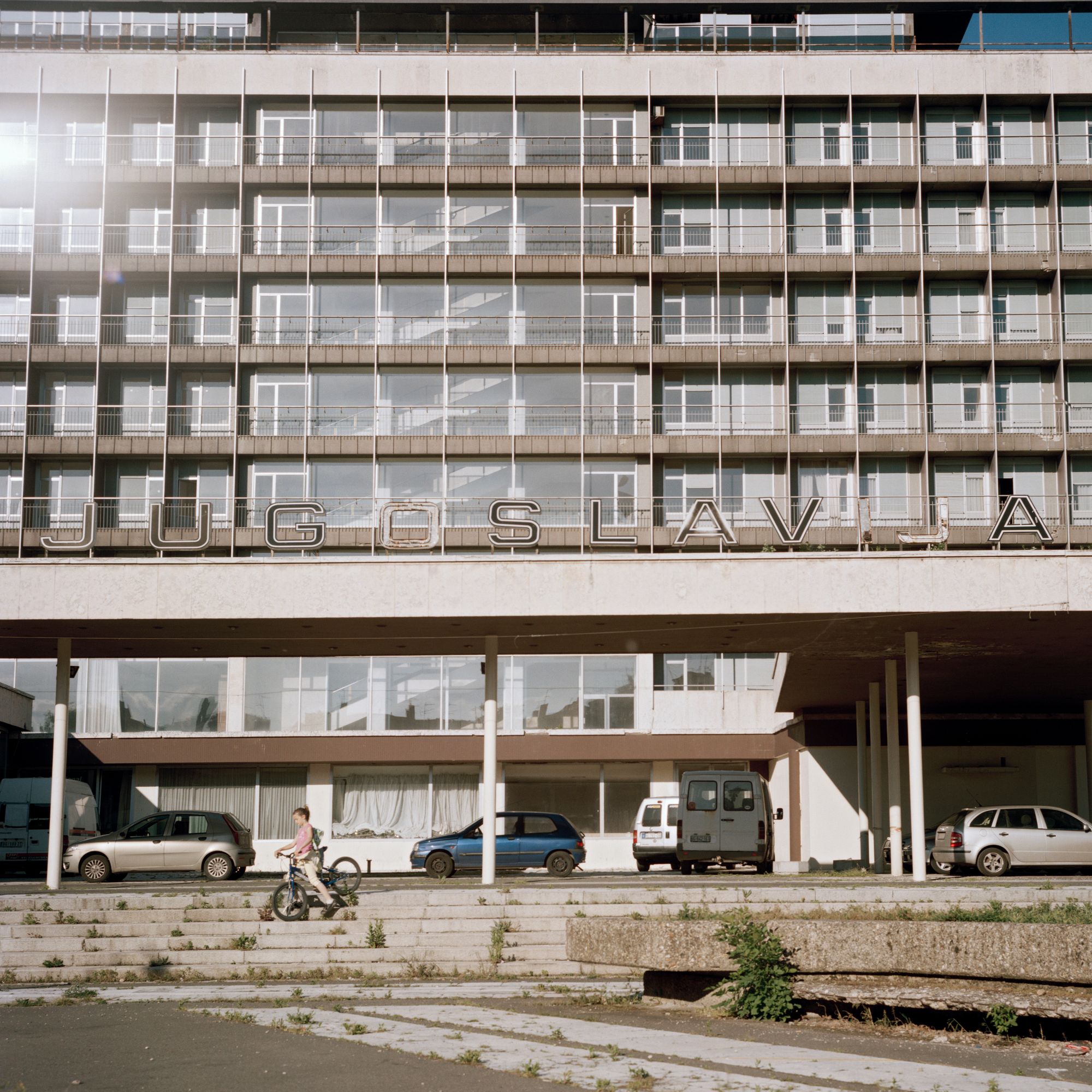
“Where do you come from? From Yugoslavia. Is there any such country? No, but that’s still where I come from.”
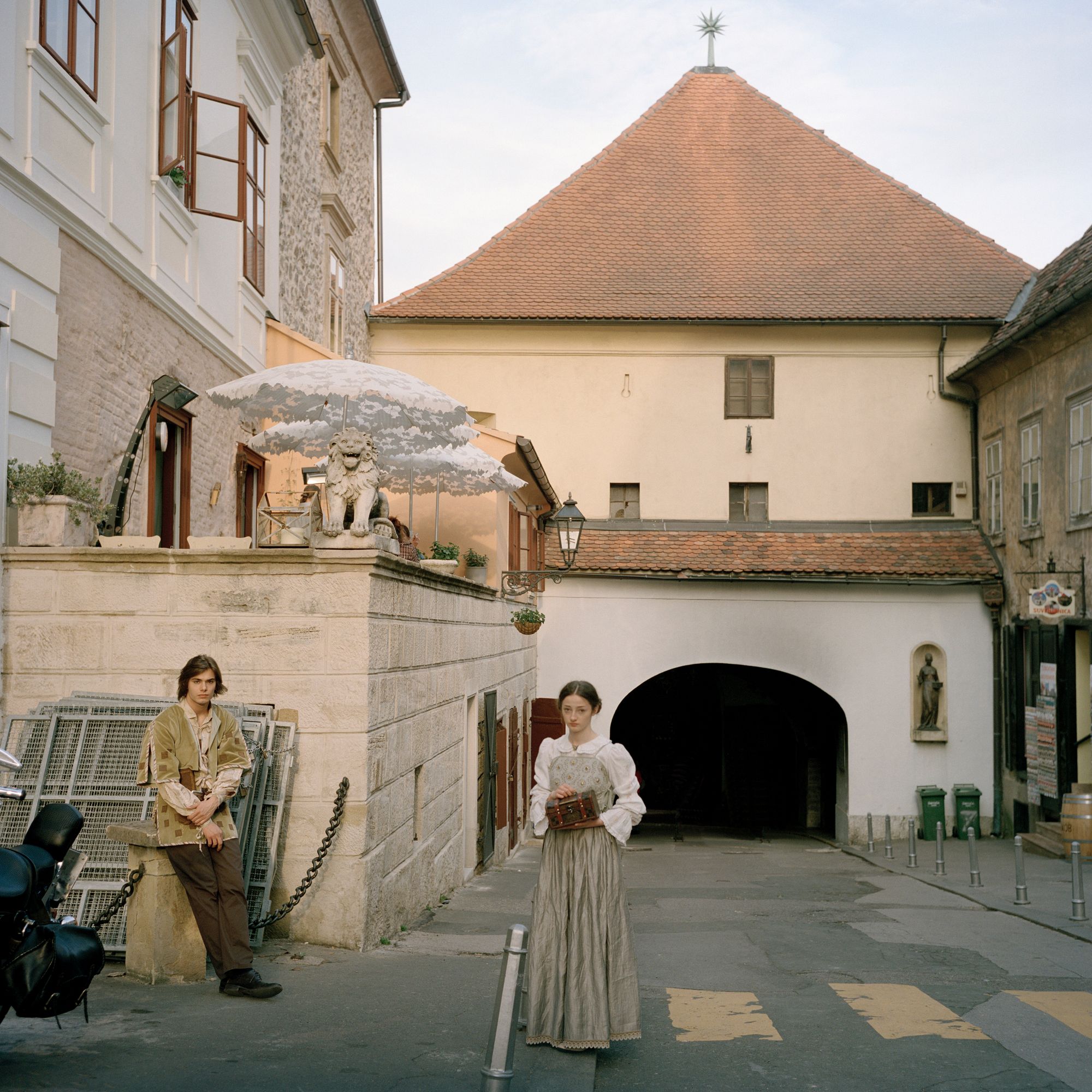
"I have learned now that it might follow, because an empire passed, that a world full of strong men and women and rich food and heady wine might nevertheless seem like a shadow-show." (Rebecca West) Zagreb, Croatia. Easter Eve. Walking around the abandoned city like a stranger. Everything is so familiar but very distant. It feels like I have been given a new pair of eyes to see that things are not as one remembers.
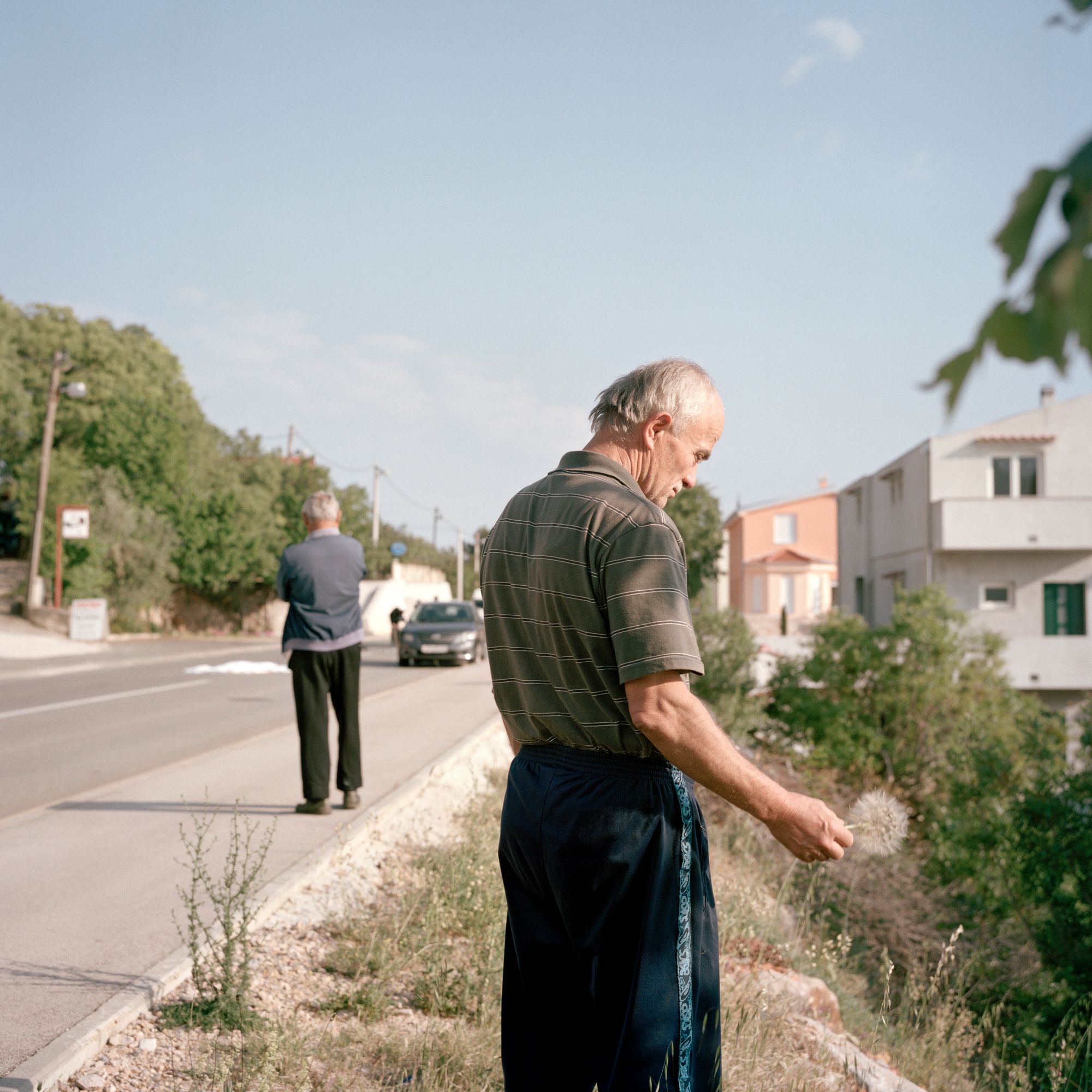
@ 15.34 hours. Stari Grad, Croatia. In a small village along the coast, a 10-year-old boy is killed by a passing car. Waiting for someone to take him away. @ 18.38 hours, we’re still waiting. Family howling in a house by the road. And the father ... If pain had a sound. I did not know at first if they were people or wolves. The older onlookers wince; they know that sound well. It comes with the territory, it seems. Younger people laugh nervously... They will not remember the inappropriateness of their behaviour, when their time comes to experience pain like that. There's a dandelion by the road. I take a picture. Don't know what else to do. More screams. The old man standing in front of me bends over and picks up the flower. Gently, he blows.
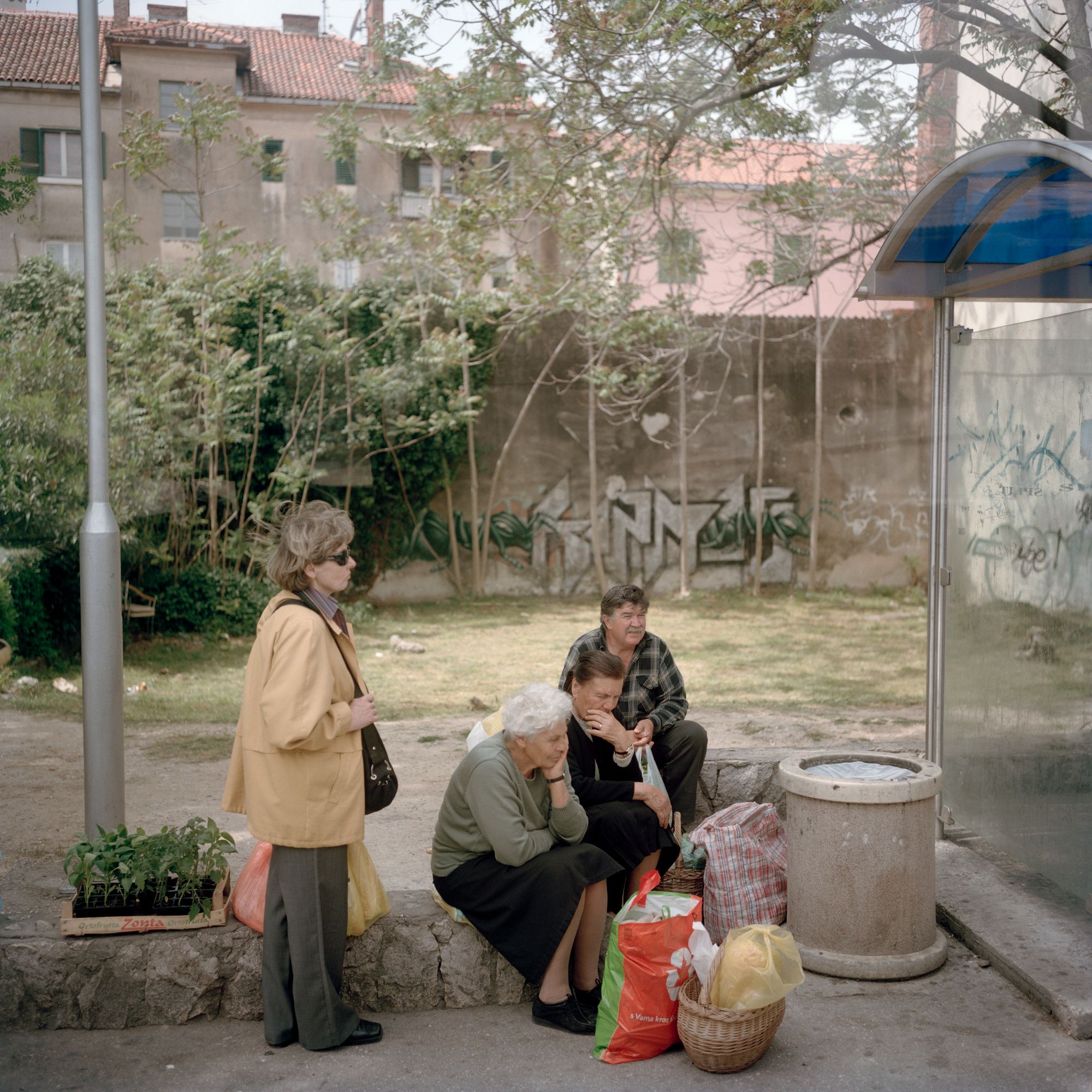
“Where I to go down into the market-place, armed with the powers of witchcraft, and take a peasant by the shoulders and whisper to him, “In your lifetime, have you known peace?” wait for him to answer, shake his shoulders and transform him into his father, and ask him the same question, and transform him in his turn to his father, I would never hear the word ‘Yes,” If I carried my questioning of the dead back for a thousand years. I would always hear, “No, there was fear, there were our enemies without, our rulers within, there was prison, there was torture, there was violent death.” (Rebecca West)
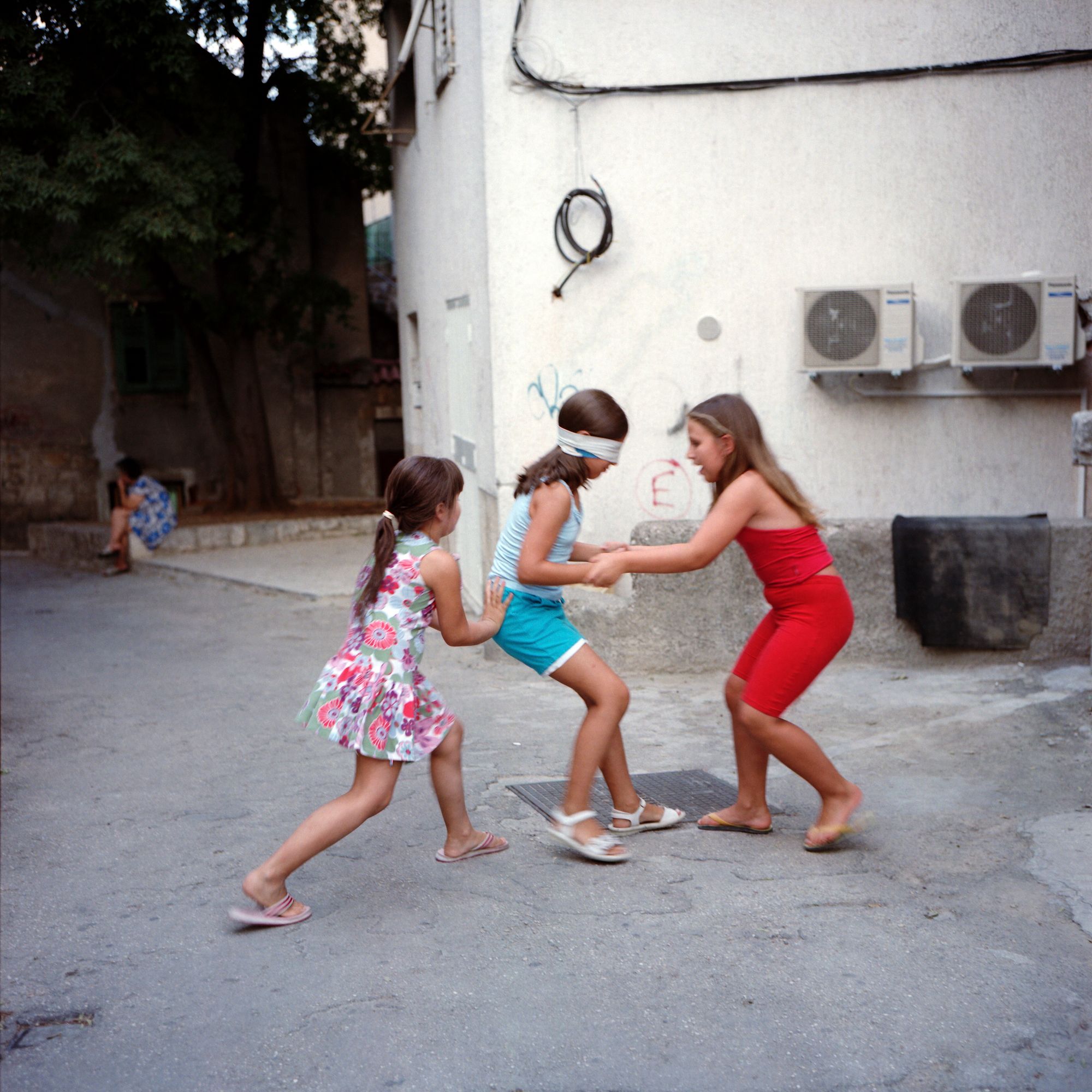
“Blood flows, and life goes on.”
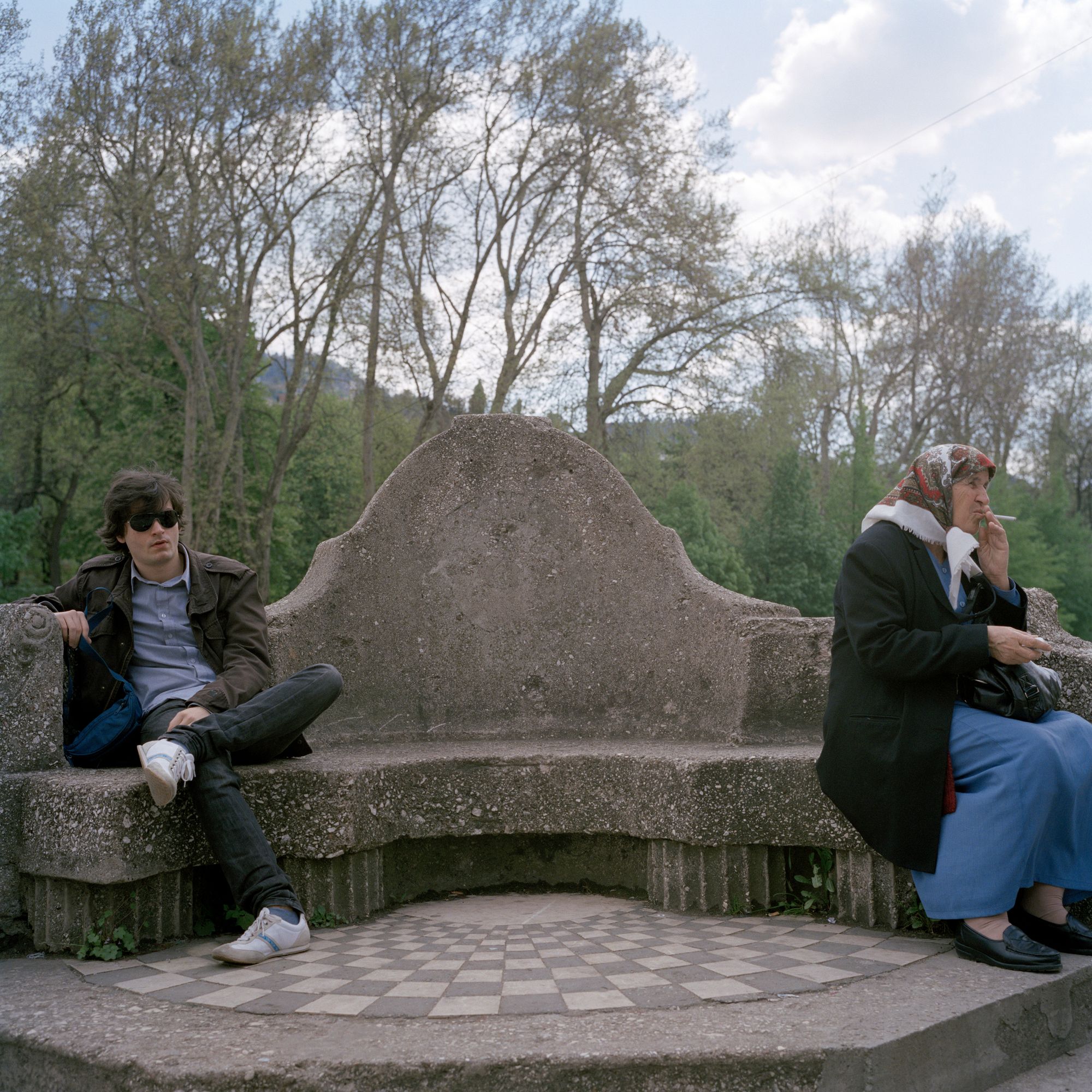
Sarajevo, Bosnia and Herzegovina. The corner where Franz Ferdinand met his end.
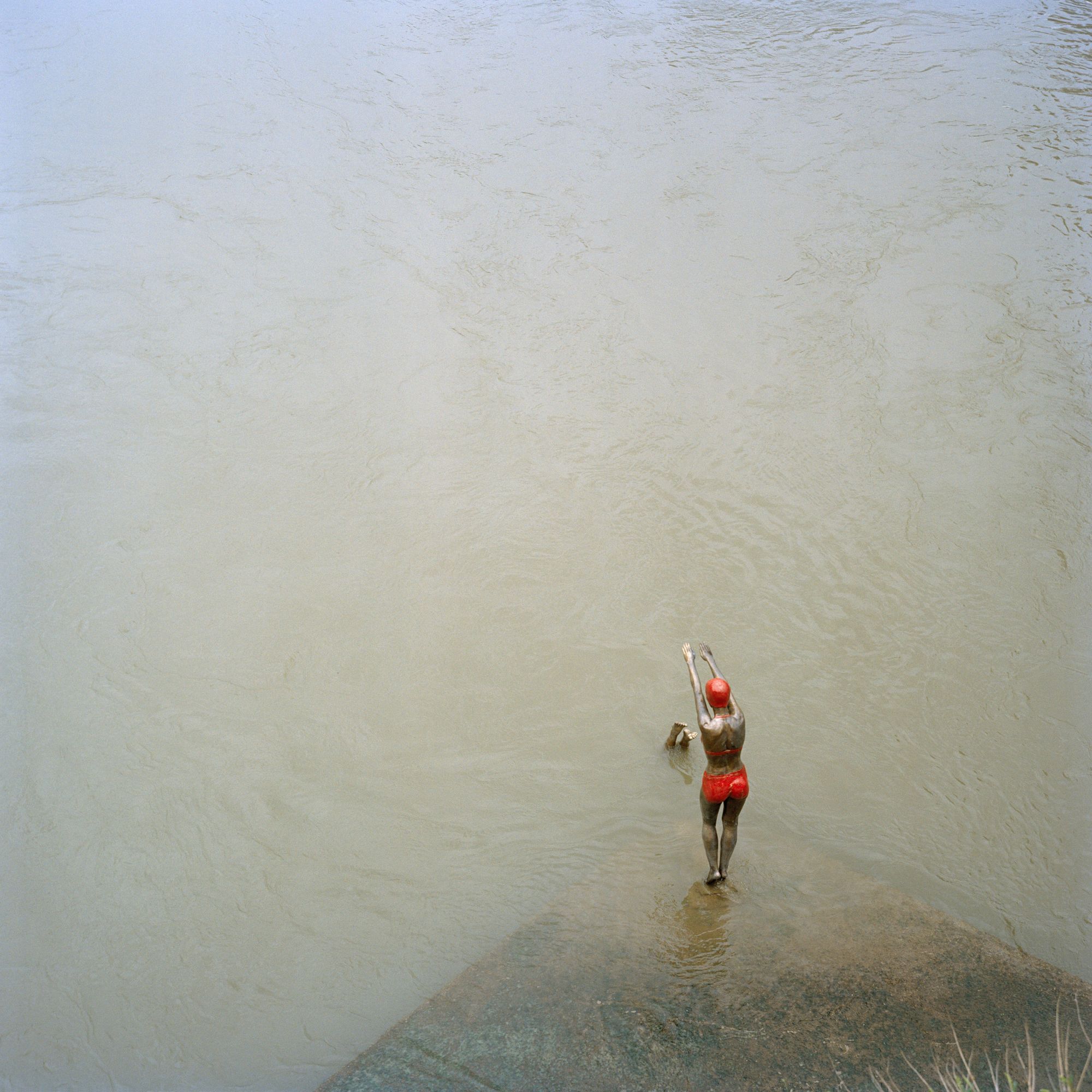
Skopje, Macedonia. Strolling through neighbourhoods that smell of chewing gum and underage sex.
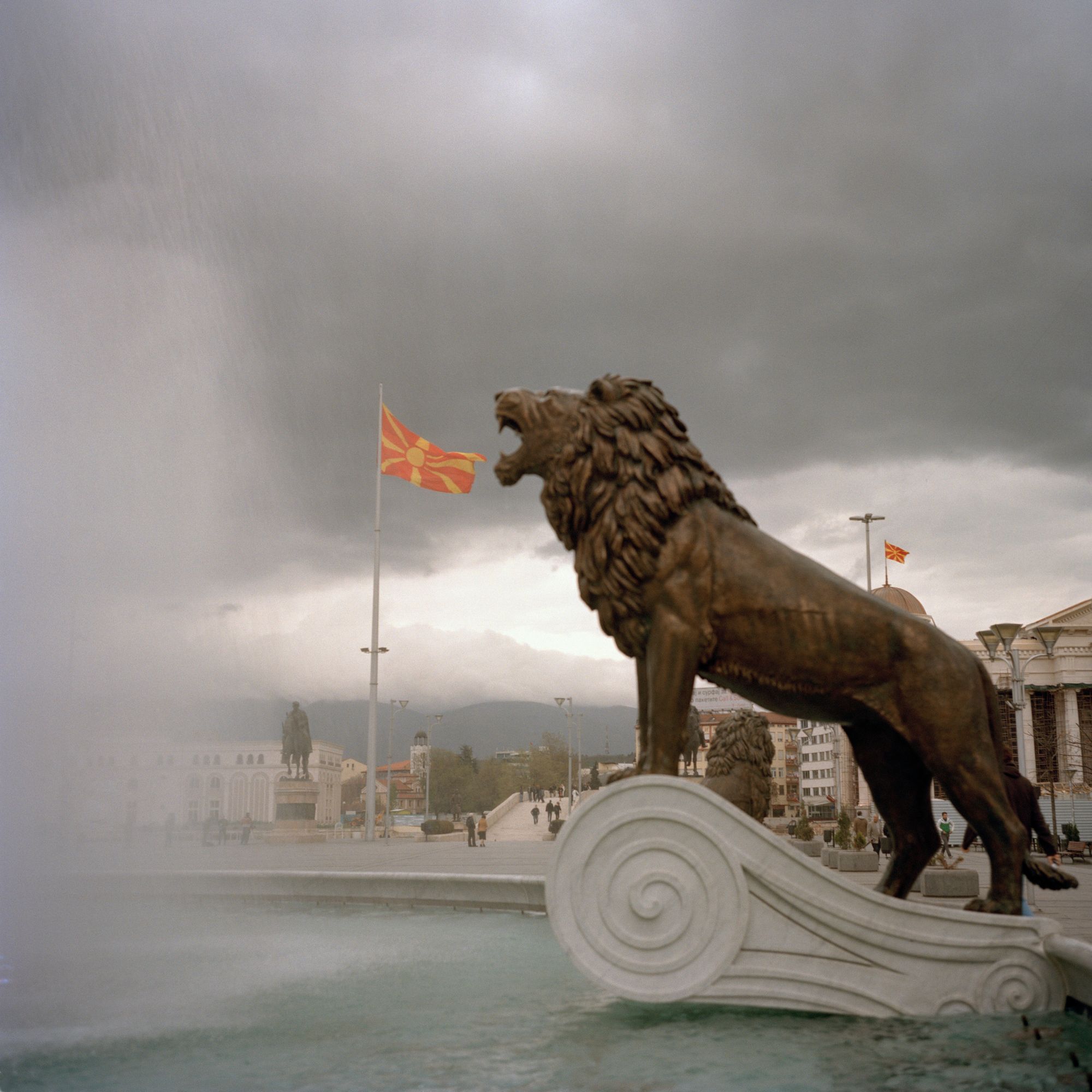
“... in wonder at the unique architectural horror which defiled that spot.” (Rebecca West) Skopje, Macedonia. The whole country is wi-fi central. Completely covered. I've taken up smoking here. It's difficult not to. Main square littered with ridiculous ‘wizardof Oz’-like sculptures. Disney art vs. infrastructure. It’s very clear which has taken precedence. A nation in crisis. Flags everywhere. ‘We are Macedonians, whatever that means.’
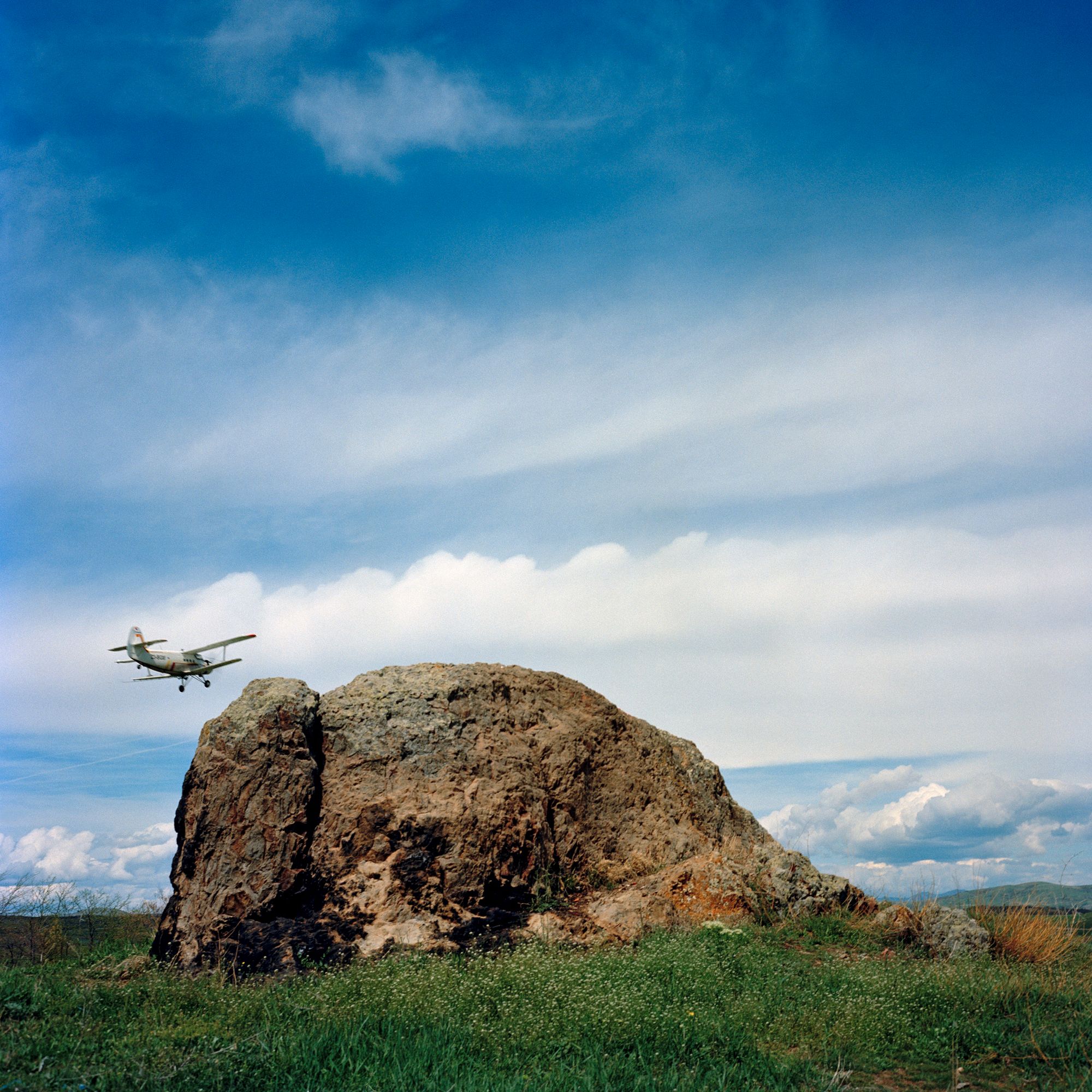
“It was a flat-topped rock, uneven in shape, rising to something like six feet above the ground, and it was red-brown and gleaming, for it was entirely covered with the blood of the beasts that had been sacrificed on it during the night.” (Rebecca West) Govedarov Kamen, Macedonia.
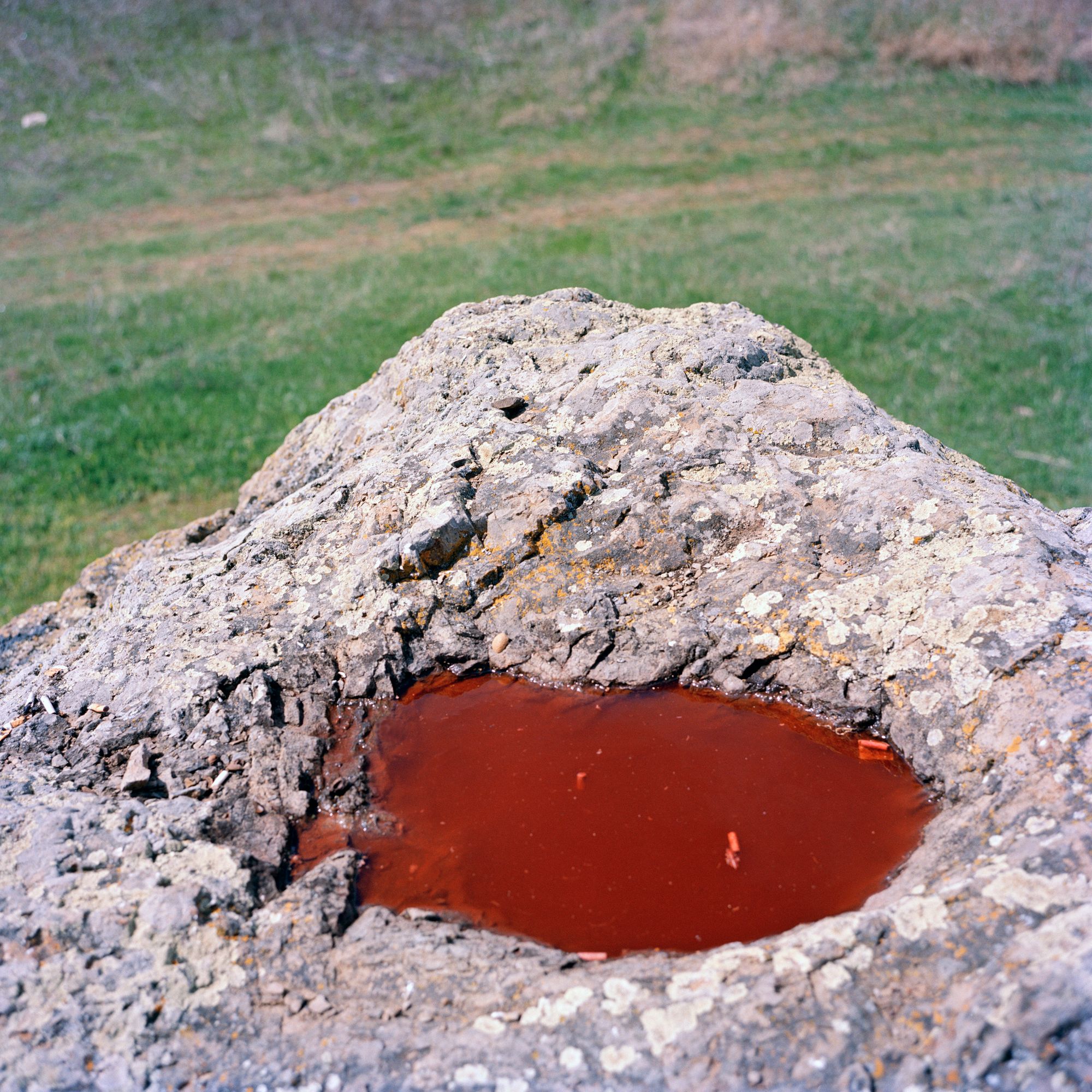
“I knew this rock well. I had lived under the shadows of it all my life. All our Western thought is founded on this repulsive pretence that pain is the proper price of any good thing.” (Rebecca West) Govedarov kamen, Macedonia. It took a long time to find the fertility stone. Through the orchards and vineyards. And there it was. I mounted the rock, amazed to see blood in its crevasse. Last years’ sacrificial blood, with cigarette butts thrown in for good measure. I squatted over its bloody hole and watched the fertile landscape in the distance.
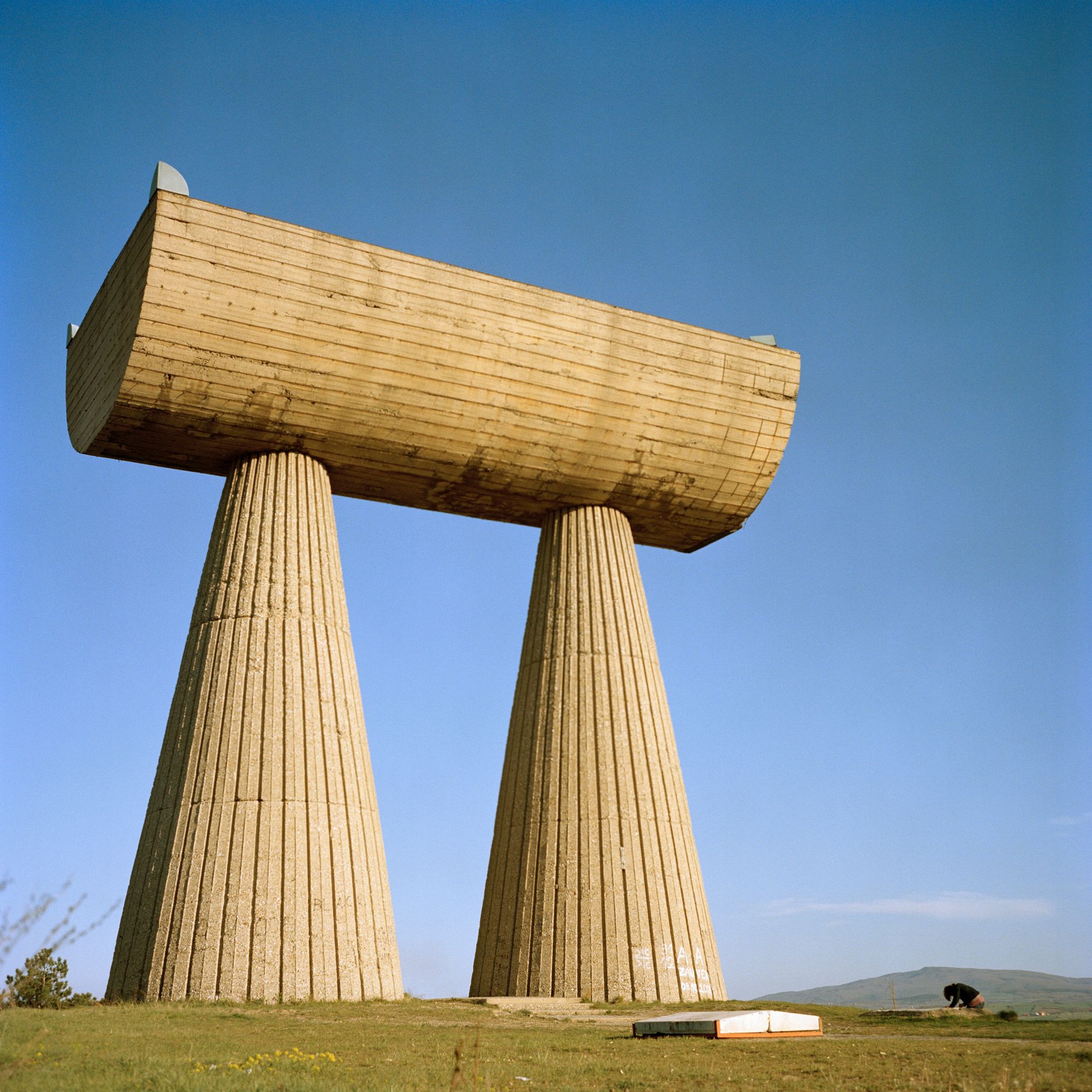
The bus dropped us off on the south Albanian side. We had a coffee on the promenade full of beautiful young things. A product of the 1990s baby boom. "They are breeding an army," my friend Michal said. Crossed the bridge to the north - the Serbian side. Staying at the No 1 Hotel. Went to see Trepca mines. Not allowed in. Our taxi driver asked me where I was from. "Ah Slavonia, I was there fighting in the 90s"... He smiled and winked into his rearview mirror. Should I have asked if it was him that had burnt down our house? Around 17.00 hours I walked up to the monument at the top of the hill. NATO soldiers standing by with mean-looking machine guns, nonchalantly hanging off their shoulders. Beautiful gold light shining down on that fucked-up divided dust bowl.
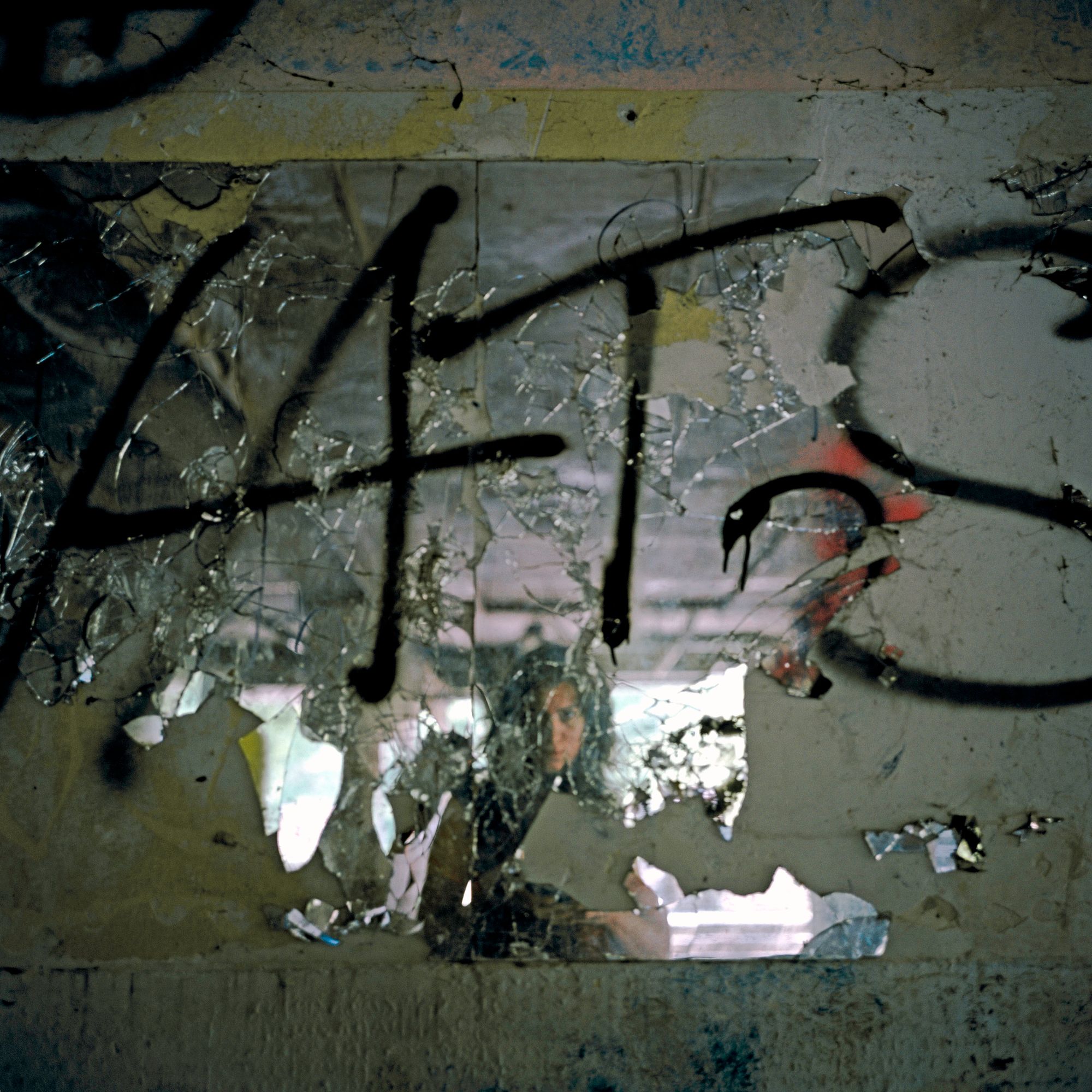
I remember thinking it all must be some sort of a joke. I remember being excited and scared at the same time. I remember how I put all my LP’s into the hallway so they wouldn't get damaged by the crossfire. I remember that my father and my brother were out that afternoon. I remember bullets spraying the front door of our building. I remember hearing what sounded like someone trying to get in. I remember my mother thinking ‘it's them’ and running towards the door. I remember grabbing onto her until all my nails broke. I remember meeting my neighbours for the first time in the basement of our building. I remember thinking 'pity I met them only now when we are all about to die'. I remember the building burning above us. I remember being sad about all those books my parents brought through the syndicate and never read... only consumed by me and the fire. I remember being pissed off that I would die a virgin. I remember when they came to pull us out. I remember how I learned to zigzag run in order to escape sniper's bullets. I remember taking shelter in the local supermarket. I remember falling asleep on bags of washing powder, next to a boy I had a secret crush on (he was our local basketball star). I remember him waking me up at 3 am and whispering: "What can I get you, Madam?” I remember asking for ice cream and champagne. I remember captured Yugoslav army soldiers sitting scared shitless opposite from us. I remember Croatian soldiers handing them box of sweets. I remember walking into our burned down apartment the following morning. I remember feeling relief that all the mess was gone and I would not need to clean up my room. I remember that everything melted except for a big orange gas bottle, laying in red crackling 'coals', waiting to go off like some post-apocalyptic witches cauldron. I remember the soles of my red converse shoes melting. I remember walking out.